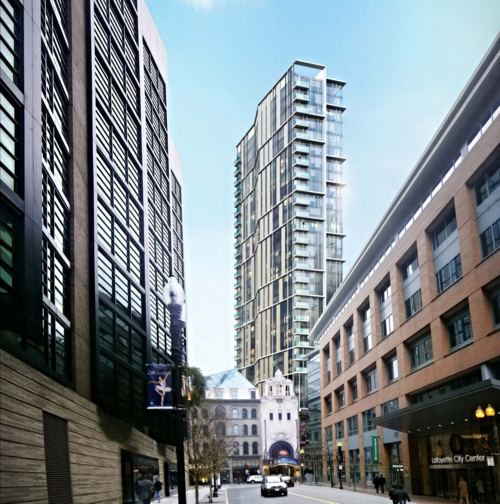Steve Wynn’s vision of a $1.7 billion gambling palace soaring above the banks of the Mystic River has bogged down in a toxic feud with Boston Mayor Marty Walsh, and we can no longer shrug the whole spat off as yet another colorful example of our head-bashing style of local politics.
The first anniversary of Wynn’s triumph in the Boston-area casino license competition is fast approaching and with the Las Vegas tycoon is only incrementally closer to winning the state and city (as in Boston) permits he needs to actually build his project.
Now Steve Crosby, the Bay State’s casino czar and a pivotal figure in the whole debate, is finally waking up to the potentially catastrophic implications of this standoff, a mess that threatens to derail one of the largest development projects in Bay State history.
Crosby has until now brushed off questions about the snail’s pace at which Wynn’s project is moving through the state and local approval process. But in remarks made to online news service GamblingCompliance (for which I write regularly, though not this particular story), Crosby is clearly growing increasingly concerned over the impasse, which, to any impartial observer, appears to have the potential to drag on for years.
“Yeah, I’m concerned and things are being slowed down,” Crosby told GamblingCompliance.
Tellingly, Crosby’s frank statement came after he was asked in the interview whether he shared the reservations expressed by James McHugh, a fellow gaming commission member, that Wynn would face a struggle in moving his project forward.
In the interview, Crosby noted that gaming commission member McHugh, the retired state judge, initially voted against Wynn and for Mohegan Sun.
It wasn’t that McHugh thought Mohegan Sun, which had proposed at Suffolk Downs in Revere had a better proposal, mind you.
Rather, McHugh “was afraid it might not be able to come to fruition because the city of Boston was so committed to the Mohegan Sun proposal.”
But Crosby then goes on to lay the blame for the current impasse squarely on Walsh.
“But I find it hard to believe that in the final analysis the city [Boston] won’t believe that it’s in its long-range best interests to get what they can from Wynn as a surrounding community, which is non-trivial, and be a part of solving a regional transportation problem, the so-called Sullivan Square problem, that can be solved with the help of Wynn’s money, and [benefit from] the jobs and revenue and so forth,” Crosby told GamblingCompliance.
“I mean, Mayor Walsh is a former labor union leader, he’s a very tough negotiator, he knows how to negotiate, and I hope this is a negotiation and in the end the parties will get to ‘yes’ – but you never know,” the gaming commission chairman noted.
I will resist the urge to say “I told you so.”
The permitting process from hell in which Wynn’s development team now finds itself is exactly the scenario that some observers predicted when the Massachusetts Gaming Commission last September awarded the Boston area casino license to Wynn over the heated objections of Boston’s headstrong and politically savvy mayor.
Even the impasse over the Charlestown traffic issue – oddly referred to by Crosby as “the so-called Sullivan Square problem” – was identified by no less an impartial and expert observer as the Metropolitan Area Planning Commission as a potentially unsolvable issue.
As it stands now, there is only one major route into Wynn’s planned Everett mega casino, and it runs right through traffic-clogged Sullivan Square. It is an area targeted by Boston well before Wynn appeared on the local scene for more than a billion dollars in redevelopment projects and roadwork.
Walsh v. Wynn
Right now, Walsh has multiple bureaucratic levers to use in order to slow, stall and potentially derail Wynn’s plans. Walsh, his allies and other Wynn opponents have flooded the courts with an array of complaints and lawsuits taking aim at various vulnerabilities in Wynn’s plan. But Walsh’s ultimate weapon may be the control he has over the Boston permitting process.
You see, Wynn is on the hook to come up with a reasonable plan – and fork over the one or two hundred million to implement it – to ease the crunch of traffic that is expected to flood Charlestown’s Sullivan Square on the way to this casino. But Boston’s Public Improvements Commission has outright rejected the proposals put forth by Wynn’s team so far, and there is no sign that is going to change anytime soon.
Meanwhile, state environmental officials are holding up their signoff on Wynn’s plans based at least in part on the objections raised by Boston officials and the failure of both sides to hammer out a traffic mitigation plan for Sullivan Square.
And this is not even the end of the local and state approval process – the daunting Chapter 91 waterfront development review process still looms ahead!
Still, Crosby is ahead of the pack in starting to take the showdown between Wynn and Walsh seriously. Serious attention has been sporadic, with little grasp that this kind of take-no-prisoners local permitting battle has been the demise of many an ambitious plan in Boston and across the state. So finally saying, “Houston, we have a problem,” is important, though the next step – finding a solution – will be even harder.
Right now, a high-powered mediator – or mediators – is needed to bring all sides together and come up with a solution that will enable Wynn to move forward and give Walsh the ability to declare victory and reap a decent mitigation package.
The man on the spot right now, environmental affairs chief Matthew Beaton, is a young, well-meaning former state legislator who probably isn’t ready to play such a role, with Boston a no-show when he tried to get both sides together to talk.
Crosby is out for obvious reasons – he is the eye of the litigation storm whipped up by Walsh, who contends the gaming commission unfairly favored Wynn in the casino licensing process. But Crosby certainly has the power to call in the heavy artillery, which in this case would clearly be his boss, Gov. Charlie Baker, who is fast emerging as the Republican Mr. Fix-It in our still heavily Democratic state.
That is, if he isn’t too tied up r with solving our other big messes, such as the whole Boston Olympic bid circus and the ridiculously unreliable MBTA.




 |
| 



